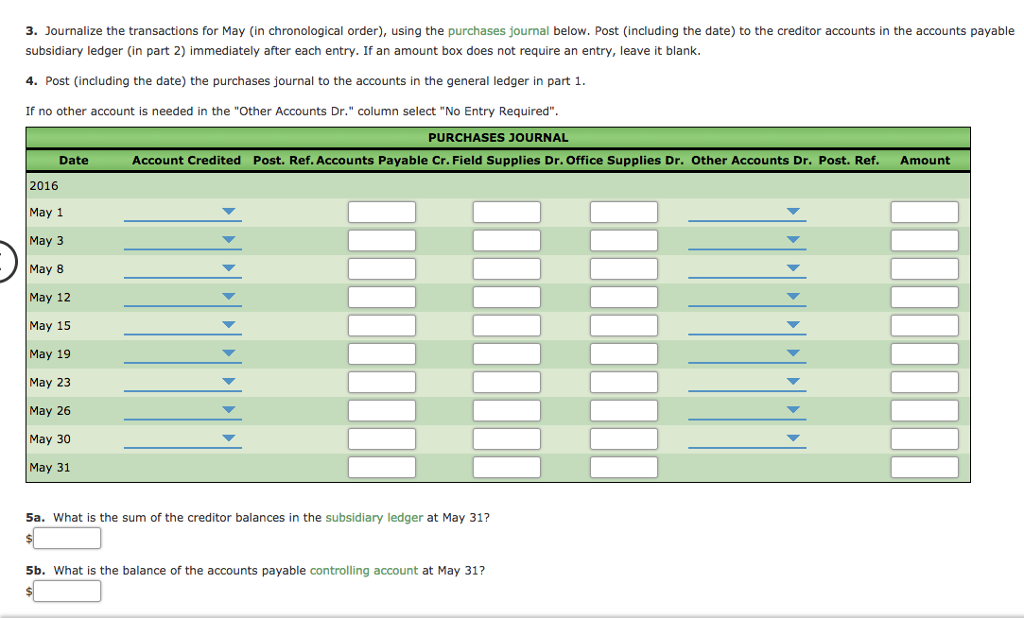

The proper accounts payable procedure begins with a good chart of accounts, which enables you to post your expenses to the correct account. Knowing this number comes into play when digging into deeper business insights by calculating your accounts receivable turnover. Accounts receivable balances are considered an asset, as that number indicates how much money is owed to you by your customers. On the other hand, accounts receivable (A/R) is money owed to you for goods or services you provided to your customers on credit. Accounts payable are considered liabilities, since it is money that is owed. Accounts payable, as explained above, are what is owed to suppliers or service providers for products received or services rendered. accounts receivable: What’s the difference?īoth accounts payable and accounts receivable are vital parts of the accounting process. If you remember from bookkeeping basics, accounts payable is a permanent account, so your closing entries will not affect this account. When accounts payable items are paid, the accounts payable account is debited, with cash credited.Įntry when utility bill is paid. Any time you purchase goods or services, the amount you owe for those goods and services is added to your accounts payable balance.īecause all of these items or services were purchased on credit, with the amount due and payable within a specific timeframe, a late fee or a penalty can be assessed if the amount is not paid within the agreed timeframe.Īccounts payable is a liability account, so if you’re using double-entry accounting, any increase to this account would be posted as a credit, with a corresponding debit made to an expense account.Įntry when adding a utility bill to your accounts payable account. Overview: What are accounts payable?Īccounts payable refers to what you owe for items purchased on credit. However, if you have multiple bills to pay, you’ll likely add them to accounts payable to be paid at a later date. If you’re a very small business, it’s likely you can pay your bills as soon as you get them. As a small business owner, you will need to pay attention to the accounts payable cycle and learn the accounts payable process flow. Backup withholding will continue on all payments made to the vendor/individual until an updated W9 is received.Processing accounts payable is part of the accounting cycle. The University will withhold taxes and submit to the IRS should a vendor fail or refuse to present a completed W9 or provides the University with invalid information.

Additionally, the Accounts Payable Office will annually follow IRS guidelines for requesting updated taxpayer information for existing vendors in which the University does not have a current one on file or receives an IRS notice of missing or incorrect taxpayer identification numbers. Each University department is responsible for requesting the initial substitute form W9 from new vendors. In place of the IRS form W9, Temple University has a substitute form W9 for each vendor/individual to complete before payment is released. The Internal Revenue Service (IRS) requires Temple University to obtain appropriate taxpayer identification information before issuing payments through the accounts payable system. Our commitment to customer service includes a personal response to all inquiries within 72 hours. Vendor statements should be forwarded to Accounts Payable’s dedicated email box: Commitment to ServiceĪccounts Payable is committed to processing all proper invoices within five business days of receipt, or when goods and services are received. Receivers are entered in TUmarketplace under the Purchase Order. If the order requires a receiver, the receiver must be entered within 48 hours of when the goods have been received. The accrual of obligations and expenses that have not yet been completely processedĭepartments are required to submit all invoices and credit memos using Concur Invoice in a timely manner so they may be processed in the correct period and fiscal year.Accurate recording in the appropriate general ledger accounts.Timely processing of accurate and legitimate vendor invoices.A "well-run" accounts payable process will include: The accuracy and completeness of Temple University’s financial statements are dependent on the accounts payable process. Our objective is to provide the highest level of customer services to faculty, staff, students, and external customers. As a full-service center, the department is responsible for issuing all non-payroll disbursements in accordance with the university, federal, and state rules and regulations.

Accounts Payable is an integral part of Temple University Controller’s Office.


 0 kommentar(er)
0 kommentar(er)
